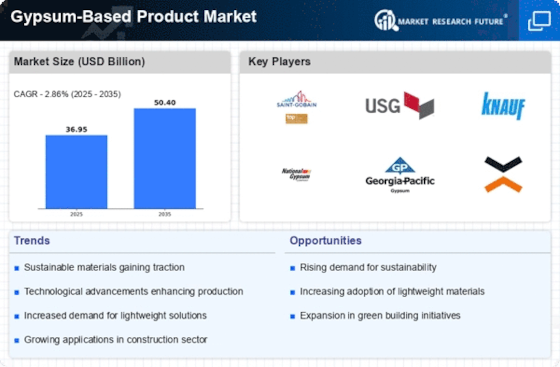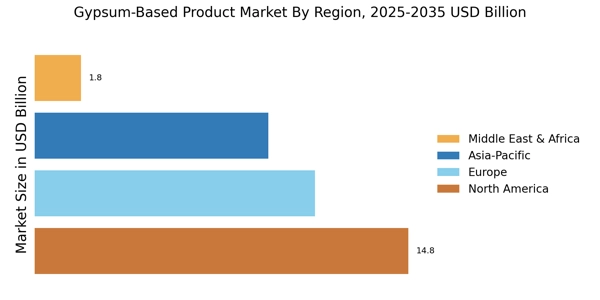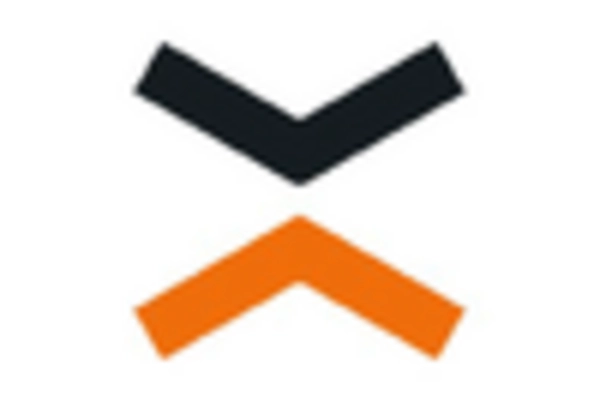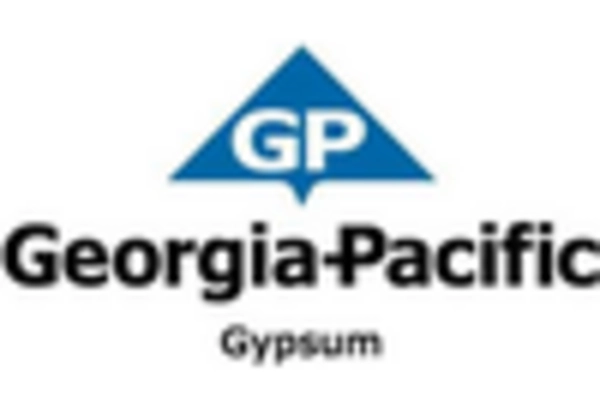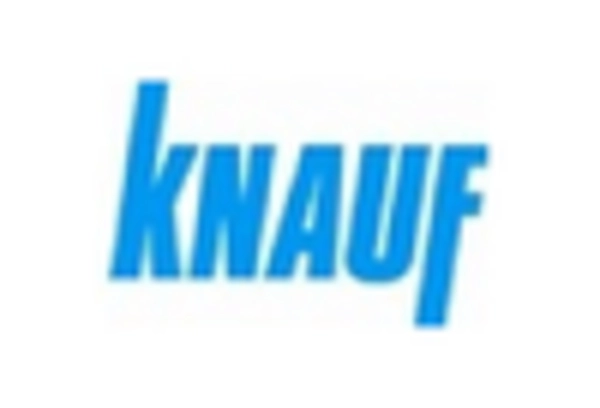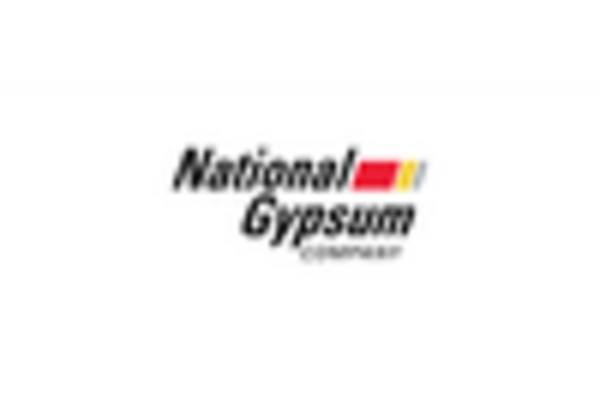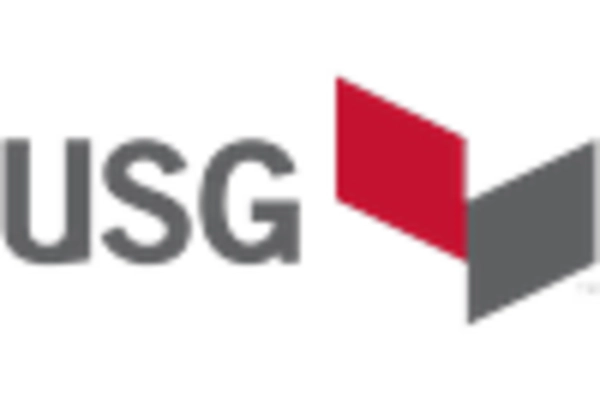Rising Construction Activities
The Gypsum-Based Product Market is experiencing a notable surge due to increasing construction activities across various sectors. As urbanization accelerates, the demand for residential and commercial buildings rises, leading to a higher consumption of gypsum products. In 2025, the construction sector is projected to grow at a rate of approximately 5.5% annually, which directly influences the gypsum market. Gypsum-based products, such as drywall and plaster, are favored for their lightweight properties and ease of installation. This trend is further supported by the growing preference for sustainable building materials, as gypsum is a natural resource that can be recycled. Consequently, the Gypsum-Based Product Market is likely to benefit from this construction boom, as more builders opt for gypsum solutions to meet both aesthetic and functional requirements.
Technological Innovations in Production
Technological advancements are playing a crucial role in shaping the Gypsum-Based Product Market. Innovations in production processes, such as automation and improved manufacturing techniques, are enhancing the efficiency and quality of gypsum products. For instance, the introduction of advanced machinery has reduced production costs and minimized waste, making gypsum products more competitive in the market. Furthermore, the development of new formulations and additives is expanding the range of applications for gypsum-based products, from traditional drywall to specialized applications in fireproofing and soundproofing. As of 2025, it is anticipated that these technological innovations could lead to a market growth rate of around 4% annually. This evolution in production capabilities is likely to strengthen the position of the Gypsum-Based Product Market, enabling it to meet the diverse needs of consumers and builders alike.
Increased Demand for Sustainable Materials
The Gypsum-Based Product Market is witnessing a shift towards sustainability, as consumers and builders increasingly prioritize eco-friendly materials. Gypsum, being a natural mineral, aligns well with this trend due to its low environmental impact and recyclability. In recent years, the market has seen a rise in the adoption of gypsum products that meet green building standards, such as LEED certification. This shift is not merely a trend but appears to be a fundamental change in consumer preferences, with a significant portion of the market now seeking sustainable alternatives. As of 2025, it is estimated that the demand for sustainable building materials, including gypsum-based products, could account for over 30% of the total construction materials market. This growing emphasis on sustainability is likely to propel the Gypsum-Based Product Market forward, as manufacturers innovate to meet these evolving demands.
Regulatory Support for Green Building Practices
The Gypsum-Based Product Market is benefiting from an increasingly supportive regulatory environment that promotes green building practices. Governments are implementing policies and incentives aimed at reducing carbon footprints and encouraging the use of sustainable materials in construction. Regulations that mandate energy efficiency and sustainability in building codes are driving the demand for gypsum-based products, which are often seen as compliant with these standards. In 2025, it is expected that more jurisdictions will adopt stringent regulations that favor eco-friendly materials, further boosting the gypsum market. This regulatory support not only enhances the credibility of gypsum products but also encourages manufacturers to innovate and improve their offerings. As a result, the Gypsum-Based Product Market is likely to experience growth as it aligns with these regulatory trends, positioning itself as a key player in the sustainable construction landscape.
Growing Awareness of Health and Safety Standards
The Gypsum-Based Product Market is increasingly influenced by the growing awareness of health and safety standards in construction. As stakeholders become more conscious of the implications of building materials on indoor air quality and occupant health, there is a rising demand for gypsum products that meet stringent safety criteria. Gypsum is recognized for its non-toxic properties and ability to contribute to healthier indoor environments, making it a preferred choice among builders and architects. In 2025, it is projected that the emphasis on health and safety in construction will lead to a significant increase in the use of gypsum-based products, particularly in residential and commercial projects. This heightened awareness is likely to drive innovation within the Gypsum-Based Product Market, as manufacturers strive to develop products that not only meet safety standards but also enhance the overall well-being of occupants.


